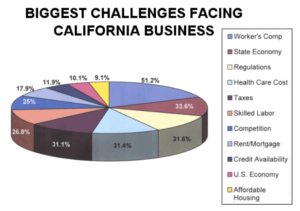Is Philanthropy Good for Capitalism?

Is Philanthropy good for capitalism?
In 2013 Zoltan J. Acs wrote the book Why Philanthropy matters. It explores the benefits of Philanthropy on the US economy; “…philanthropy as an underappreciated force in capitalism, measures its critical influence on the free-market system, and demonstrates how American philanthropy could serve as a model for the productive reinvestment of wealth in other countries.” It deals with the three primary questions of what to do with wealth: “keep it, tax it, or give it away”, and sheds a positive light on the contribution philanthropy makes to education, science and medicine.
And, serving as a compliment to the government, how capitalism actually makes it possible for the extremely successful to use philanthropy to establish institutions and programs which help those who fall between official cracks. And lastly, how philanthropy often promotes knowledge, university research and technological innovations. So yes, philanthropy is good for capitalism, and much more.
Why philanthropy?
The most intriguing aspect of philanthropy might be the motivation behind it. Why give at all? Presumably, many philanthropists started out as highly focused entrepreneurs who worked very hard and intelligently and with a great deal of skill to drive themselves to create an empire or amass a fortune. Despite competitors’ most cutthroat efforts to copy or steal ideas and employees, the typical thieving and con schemes invariably present when money is involved, and the always present opposition to momentum inherent in the status quo, they willed themselves, and others, to great success.
How does someone immersed in such a struggle turn from an “ it’s me against the world” attitude, to true compassion for others and a desire to generously help individuals they’ve likely never met, and from whom they’ll likely never receive a thank you. This is quite a transformation. It would appear that for many individuals, achieving significant wealth triggers a natural, and wonderful desire to give to the less fortunate in society. Two excellent examples would be Andrew Carnegie and John D. Rockefeller, both who believed responsibility to the less fortunate came with wealth.

Why give away money?
There are some very good, practical reasons to participate in some form of philanthropy:
-
- Tax write-offs
- Garners positive attention and good PR
- It feels good to do the right thing
- The recipient organization may have helped the donor
- With great power comes great responsibility (thank you Stan Lee)
Bill Gates, Oprah Winfrey and many others are following the lead of such distinguished examples as Mr. Carnegie, Mr. Rockefeller, Benjamin Franklin and others who gave enormous amounts to worthy causes. But philanthropy often involves large sums of money and in some cases everything, as was the case with Chuck Feeney, Andrew Carnegie and Yu Pengnian![i] One marvels at their generosity.
In a recent interview, President of Universal Giving, Pam Hawley, shared her view of philanthropy this way; “Philanthropy is about the love of people… about one’s mission in life”. When considering the many wonderful examples of philanthropy by great men and women, it is hard to argue with that.
Conclusion
Philanthropy may be good for the economy, it may have tangential benefits and favorable tax consequences and of course, always makes one look good, but why does philanthropy matter? It matters because people matter and because love matters. And at some point, hopefully most of us, if given the opportunity of having great wealth and the power that comes with it will realize that Stan Lee was right![ii]
We hope you found this article about philanthropy helpful. If you have questions or need expert tax or family office advice that’s refreshingly objective (we never sell investments), please contact us at Info@GROCO.com or visit www.GROCO.com. Unfortunately, we no longer give advice to other tax professionals gratis.
To receive our free newsletter, contact us here.
Subscribe to our YouTube Channel for more updates.
Considerately yours,
GROCO, GROCO Tax, GROCO Technology, GROCO Advisory Services, GROCO Consulting Services, GROCO Relationship Services, GROCO Consulting/Advisory Services, GROCO Family Office Wealth, and GROCO Family Office Services.
[i] https://www.inc.com/geoffrey-james/unlike-bill-gates-3-billionaires-gave-it-away-while-alive.html
[ii] “With great power comes great responsibility.” https://en.wikipedia.org/wiki/Stan_Lee
A special thanks to our sponsor, GROCO.com

How to Successfully Sell Your Company
How to Successfully Sell Your Company Tips for Privately-Held Business Owners By Jason Pfannenstiel Be clear about your motivation for selling. Reason for the sale is among the first questions buyers will ask. Your personal and professional reasons should be more than simply wanting to cash out for a certain magical dollar value. Before you…
15 Ways to Improve Your Cash Flow Now
15 Ways to Improve Your Cash Flow Now By Howard Fletcher Cash management theory and techniques are well understood and practiced by treasury managers in large corporations. They use sophisticated models and cash management tools that allow them to predict and manage cash. Many of these are beyond the reach or need of small companies.…
Survey: Biggest Challenges Facing California Businesses
Survey: Biggest Challenges Facing California Businesses A recent survey was conducted to determine what business owners in California thought the biggest challenges facing their businesses were. Out of 1500 questionnaires, these are the percentage of respondents who checked off a box next to each challenge. (Respondents were allowed to select more than one box, so…
5 Strategies to Successful Cash Flow Management
5 Strategies to Successful Cash Flow Management By John Reddish How can you predict, avoid and/or, minimize the impact of a cash emergency? Managing cash flow is every manager’s challenge, every day, every year. Those managers who keep a close eye on their daily activity and emerging industry trends can help reduce their company’s exposure…


